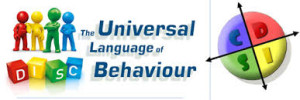DISC is a popular test because it is user-friendly, has high credibility, and low-cost. DISC is however not a sufficient screening test on it’s own for three reasons.
- Validation
While the DISC assessment itself is valid as it accurately measures what it says it measures, DISC does not measure job success.
If it did, then every assertive, outgoing individual would be a successful salesperson and every steady, compliant person would turn out to be a successful accountant.
DISC only assesses how energetically an individual will respond toward problems, people, pace, and procedures. It doesn’t predict how proficient that same person might be at solving problems, interacting with people, working at a fast pace, or complying with rules and procedures.
- Observation
As an “observable language”, each style (D-I-S-C) is easily observed by others when the other person(s) know what to look for. D’s and I’s tend to be animated; S’s and C’s more reserved. I’s and S’s are more people-oriented, whilst D’s and C’s are task focused. I’s and S’s are often “good with people.”
But you can’t measure performance based on behavior. You can find outgoing, influential people who have a great attention to detail and regulations.
Research shows that the behavior you see might not be a predictor of the results you get. Five-factor personality tests and cognitive ability tests are much better predictors of future job fit and skill potential than behavior style assessments like DISC and temperament assessments like MBTI.
- Norming
DISC assessments are considered ipsative tests and reports the relative strengths of the person being tested. If a DISC assessment reports the individual is 75% “high D”, this only means this individual is energized by asserting him/herself in dealing with problems, not how that person will perform a job or interact with others.
Two people who both “score” 75% in the D Style might appear to approach the same problem in a similar way but get two entirely different outcomes. In addition, one may handle collaboration well whilst the other won’t.
Normative tests however, measure an individual’s “score” against specific characteristics, which allows individuals to be compared to other employees who have met with success or failure in a job.
By using normative tests when screening employees, managers can select candidates who will have the best chances of success if hired or promoted and avoid placing the wrong employee in the wrong position.
Note:
While DISC is not a good predictor of job skills, it is a powerful assessment for predicting HOW a candidate will interact with other people and approach a project. By using DISC in conjunction with five factor personality tests, managers can predict both job fit and team (people) fit with accuracy.
If you are using DISC when hiring employees, use it correctly and in conjunction with other hiring tools.



